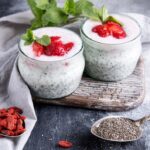Sinus problems can be frustrating and uncomfortable, causing symptoms like nasal congestion, headaches, facial pressure, and difficulty breathing. While medical treatments help manage sinusitis, diet plays an important role in managing sinus inflammation and mucus production. Certain foods can trigger or worsen sinus issues by increasing inflammation, mucus production, and allergic reactions. Here are 20 foods that South Africans should avoid if they suffer from sinus issues.
1. Dairy Products (Milk, Cheese, Yogurt)
Dairy products can thicken mucus and increase nasal congestion, which may worsen sinus problems. Milk, cheese, and yogurt are common culprits for individuals with sinusitis, as they can stimulate mucus production.
2. Fried Foods
Fried and greasy foods contain unhealthy trans fats that increase inflammation throughout the body, including the sinuses. This inflammation can lead to nasal congestion and worsen sinus pain.
3. Sugar
Sugar is a known inflammatory agent that can cause inflammation in the sinuses and worsen symptoms of sinusitis. Foods high in added sugars, like sweets, pastries, and sugary drinks, should be avoided.
4. Processed Meats (Bacon, Sausages, Deli Meats)
Processed meats contain high levels of preservatives and additives, such as nitrates, that can trigger inflammation and sinus congestion. They are also high in sodium, which can lead to dehydration and thicker mucus.
5. Alcohol
Alcohol, particularly beer and wine, can cause nasal inflammation and lead to sinus congestion. Alcohol can also dehydrate the body, making mucus thicker and more difficult to expel.
6. Spicy Foods
While some people find that spicy foods can temporarily clear nasal passages, they may also irritate the sinuses and trigger an overproduction of mucus. Foods like hot peppers, spicy sauces, and curries can exacerbate sinus problems.
7. Caffeine
Caffeinated drinks like coffee, tea, and energy drinks can cause dehydration, which thickens mucus and makes it harder for the body to clear the sinuses. Reducing caffeine intake can help manage sinus congestion.
8. Tomatoes
Tomatoes are high in histamines, which can trigger an allergic response and lead to sinus congestion. Tomato-based products like ketchup, sauces, and soups can worsen sinus symptoms in individuals sensitive to histamines.
9. Wheat and Gluten
Some people with sinus issues may be sensitive to gluten, a protein found in wheat and other grains. Gluten sensitivity can cause inflammation and increase mucus production, aggravating sinus problems.
10. Chocolate
Chocolate contains sugar and caffeine, both of which can contribute to sinus congestion. The presence of histamines in chocolate can also trigger sinus inflammation in some individuals.
11. Refined Carbohydrates
Refined carbs, such as white bread, pasta, and pastries, can promote inflammation and mucus production. These foods can worsen sinus congestion and make it difficult to breathe.
12. Soy Products
Soy products like tofu, soy milk, and soy sauce can trigger allergic reactions in some individuals, leading to sinus inflammation and congestion. Those with sinus issues may want to limit their intake of soy-based foods.
13. Corn
Corn, particularly in processed forms like corn syrup and corn chips, can lead to sinus inflammation in some people. Corn is a common allergen, and avoiding it may help reduce sinus-related symptoms.
14. Peanuts
Peanuts are a common allergen and can cause allergic reactions that lead to sinus inflammation and congestion. Peanut butter and other peanut products should be avoided if they trigger sinus problems.
15. Eggs
Eggs, especially the whites, can trigger allergic reactions in sensitive individuals, leading to sinus inflammation and congestion. If you have sinus issues, consider cutting back on egg consumption.
16. Shellfish
Shellfish like shrimp, crab, and lobster can cause allergic reactions that may worsen sinus problems. The histamines released during an allergic reaction can lead to sinus congestion and difficulty breathing.
17. Artificial Sweeteners
Artificial sweeteners, like aspartame and saccharin, can trigger allergic reactions or increase inflammation in some individuals, potentially worsening sinus symptoms. Avoiding artificially sweetened products may help reduce sinus issues.
18. Ice Cream
Ice cream is a double threat for those with sinus issues, as it contains both dairy and sugar. These ingredients can increase mucus production and sinus congestion, making ice cream a food to avoid when dealing with sinusitis.
19. Red Meat
Red meat, especially when consumed in large quantities, can promote inflammation in the body. This inflammation can affect the sinuses and lead to congestion and discomfort.
20. Pickled and Fermented Foods
Pickled and fermented foods, such as sauerkraut, pickles, and kimchi, are high in histamines, which can trigger sinus congestion and inflammation. Avoiding these foods can help reduce sinus symptoms in people with histamine intolerance.
Managing sinus issues involves more than just medical treatment—it’s also about making smart dietary choices. Avoiding foods that trigger inflammation, mucus production, and allergic reactions can significantly improve sinus health. By reducing the intake of dairy, processed meats, sugar, and other inflammatory foods, individuals with sinus problems can reduce symptoms and improve their quality of life. For those with persistent sinus issues, it’s also important to consult a healthcare provider or allergist for personalized advice.








